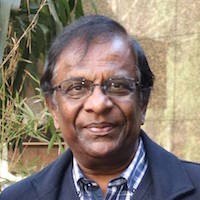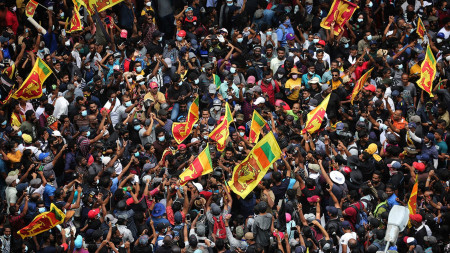Introduction
Universal suffrage is crucial in shaping a nation’s political landscape. Decisions made at the ballot box lie at the core of democratic societies, guiding the policies that shape our lives and futures. However, the choices made by voters are influenced by a range of factors, including political affiliations, candidate attributes, policy positions, socioeconomic status, social influences, and media impact. Each factor plays a unique role in shaping individual attitudes, preferences, and decisions at the polls.
Periodic elections free from undue influence are fundamental to democratic governance. These elections should offer citizens the opportunity to choose representatives who will make decisions affecting their future. However, political parties often use various tactics to mislead voters, including making unrealistic promises, engaging in corrupt practices like offering material incentives, and creating fear through violence, both state and non-state. Modern technologies further complicate the situation by enabling manipulation and disinformation, while foreign interference remains a significant concern.
The Sri Lankan Context
In Sri Lanka, a long list of male candidates has entered the race for the upcoming presidential election. Many of these candidates are seen as proxies, aiming either to support or undermine candidates from other parties.
There are credible allegations that state resources are being used to support the incumbent president. Allocating public funds to projects for electoral gain, rather than public interest, has become commonplace. Disinformation and misinformation campaigns through various media, texting, and messaging platforms are standard practices. The media, which is supposed to provide balanced coverage, often fails to do so. Old political operatives with histories of fraud and violence have re-emerged to support certain candidates. Election-related violence is once again rearing its ugly head, with activities such as bribery, voter deception, and attempts to influence voting behaviour becoming all too common.
This article aims to highlight key factors that voters should consider during this presidential election.
Elections and Democratic Practice
In the name of democracy, many world leaders continue to support authoritarian or would-be authoritarian states, making a mockery of democratic practices. A functional democracy requires broad acceptance of diverse views. Yet, deformed democracies have given rise to dynastic and familial rule, suppressing freedom of expression, and undermining civil liberties. The independence of the judiciary and media is often compromised, leading to the establishment of tyrannical regimes that ultimately erode democratic practices.
In countries like Sri Lanka, India, and Bangladesh, the rise of ethno-religious fundamentalism has further undermined the acceptance of pluralism. Non-majoritarian communities are marginalised in favour of religious, cultural, and linguistic supremacy. In Europe, this trend has led to the rise of ultra-nationalist regimes that destroy the tolerance and respect that communities once had for one another. The rise of far-right, ethno-nationalist majoritarian politics has become a global phenomenon.
Thus, elections do not always equate to democracy. However, many believe that democratic practice is a more efficient and capable way of changing a country’s political course. The possibility of errors in decision-making is believed to be higher under authoritarian regimes. Yet, elections today are often held against a backdrop of rising populist conservatism and the strengthening of far-right movements worldwide.
As a result, many young voters are disillusioned with elections. In many countries, they question the validity of elections as a measure of a healthy democracy. Media, civil society, and the judiciary, which have traditionally upheld democratic values, have been weakened. The flames of democracy are slowly being extinguished and keeping those flames alive is no easy task.
The Same Old IMF Economic Tonic
Despite the pro-government propaganda in Sri Lanka, the so-called economic reforms have not addressed the serious issues affecting most of the population. While people struggle with the unbearable cost of living, IMF-led economic restructuring has imposed further pressures, benefiting the ruling elite and their protégés.
The primary concern of the IMF has been to protect the interests of the neo-liberal elite, particularly those led by the United States. Ruling elites in countries that receive IMF loans are often marked by widespread corruption, mismanagement, and resource wastage. Resources are often pillaged for personal gain and electioneering purposes, keeping these elites in power. For instance, Pakistan, the IMF’s fourth-largest debtor, is expected to seek another bailout soon.
Unfortunately, this pattern has repeated itself in many countries, including Sri Lanka. Since joining the IMF in 1950, Sri Lanka has received sixteen packages of loans. The current loan package, the 17th, enjoys the backing of the elite. Several creditor countries have agreed to defer Sri Lanka’s debt repayments until 2028. While foreign reserves have increased, inflation and interest rates have fallen, and tourist arrivals have risen, the sustainability of these gains is questionable given the global tensions, pandemic risks, and economic cycles.
Nevertheless, the current economic climate could be used productively to transform and rebuild the economy under a democratic regime that maintains checks and balances on the capitalist mode of production. This is exemplified by the progress made in the People’s Republic of China and the Socialist Republic of Vietnam. Without fundamental structural and constitutional changes, however, Sri Lanka’s current economic environment will be short-lived, and the country may soon require an 18th IMF loan package.
Drastic changes are needed in the upcoming presidential elections to prevent a worsening socio-economic and political crisis.
The Corruption Conundrum
Some analysts and writers defend corrupt regimes and politicians by downplaying the role of corruption in Sri Lanka’s economic mess. Meanwhile, those who have been part of corrupt, wasteful, and mismanaged administrations are making new promises, claiming that incompetence, ineptitude, mass-scale corruption, and looting of the public treasury will no longer be the norm. Believing these false promises would be disastrous for the country and future generations. While corruption cannot be entirely eradicated, it must be drastically curtailed and not allowed to dominate governance.
Historically, political parties and candidates in Sri Lanka have failed to keep their election promises once in power. Post-independence talk of economic development, diversification, and the abolition of the executive presidency has led to little progress. Despite following various capitalist frameworks, from state-controlled to neo-liberal, and from closed to open economies, the country has seen little change, with only slight shifts in emphasis.
Common themes across these capitalist frameworks include investment promotion, modernization of the rural economy, establishing free trade zones, providing unregulated environments for investors to exploit labour, and maximizing profits. Any socio-economic and cultural progress under capitalism depends on removing social barriers rooted in feudal remnants. Yet, with increasing instability, ruling elites have been more than willing to retain and conform to feudal remnants, even resurrecting royal traditions.
This shift has led to a focus on irrationality, myth, and stagnation, displacing creativity and stimulation in arts and culture with blandness.
Protecting Rights and Freedoms
During past elections, voters have considered the threats posed to democratic freedoms and human rights. However, these considerations were made without iron-clad guarantees of protection. Depending on the prevailing political circumstances, voters cast their ballots with the hope that the candidate they chose would change the way the country was governed. Yet, these expectations were rarely met.
Even if a new regime is brought to power by revolutionary means, there is no guarantee that it will lead to a better setup. From the Russian revolution onward, almost all regimes brought to power through revolution have ultimately failed, not solely due to imperialist or neo-liberal conspiracies, but also because of internal contradictions that led to factional infighting. Regardless of how a progressive regime comes to power, the end result will be the same if the citizenry and civil society are not empowered and remain passive in the decision-making processes that affect their future.
In Sri Lanka, many people are fed up with the way the established ruling classes and their protégés govern. Their methods have spread and intensified corruption, waste, and mismanagement, even resorting to criminal means. During the pre-election period, providing material incentives such as money, food, alcohol, land, and equipment has become widespread, along with making promises that are quickly forgotten after the elections. Massive misinformation and disinformation campaigns are conducted against opponents, while racism and violence, as seen in the pre-Easter bombing periods, are also used.
Voting offers citizens the opportunity to participate in the decision-making process that shapes their future and that of the next generation. If someone does not vote, others will decide that person’s future. All eligible citizens should vote for the candidate they believe can create the necessary change for the country to achieve a better socio-economic and political environment. Voting allows individuals to stand up for the issues they consider important.
The Erosion of Democracy
Over the past two decades, there has been a global trend of reversing democratic practices. This is often driven by authoritarian leaders who use their power to undermine democratic norms and institutions. In Sri Lanka, this has manifested in a situation where leading political figures mobilize or create grievances to gain or maintain power, often at the expense of dismantling existing democratic norms and institutions.
While the methods by which authoritarians acquire power may differ, a common characteristic is their persistent effort to undermine the mechanisms and institutions designed to keep authoritarianism in check. Flawed elections, curtailed democratic rights, and eroded checks and balances have all contributed to the decline of the rule of law and political accountability. This decline is further complicated by the cost-of-living crisis, climate change, and ongoing global conflicts.
Conclusion
Democracy can only survive and flourish if people actively participate and contribute to its practice, making it a material reality and a continually renewing process. When citizens disengage, democratic norms and practices erode. The right to vote in fair elections is a cornerstone of democracy, and if elections are held in a corrupt and violent environment, democracy will perish. In these circumstances, citizens have a duty to do everything possible to protect democratic practices and prevent rights violations.
Sri Lanka needs a new governance with a new outlook, a new dynamic policy framework and a new leadership council that is capable of and will enable developing an economy that will satisfy basic needs of the local population, by protecting the country’s food, water, and energy security. This requires enhancing local agricultural and industrial production and building a service and export-oriented competitive economy based on those foundations.
A majority of the population appears to have placed their trust on National People’s Power and its presidential candidate comrade Anura Kumara Dissanayake as being capable of handling this transformation. Despite the efforts of vilification of the JVP’s history and its associates, people believe that those who remained steadfast in their ranks are honest and committed for building a better society. The National Peoples Power is increasingly mobilising and organising the masses. It has even established an island-wide institution capable of real-time monitoring, recording, and reporting election-related criminal activities. It appears to be a timely and promising move.
It is time for Sri Lankan voters to use the upcoming presidential election as a platform to create the necessary change, address the serious challenges facing the country, and protect its future.

| Lionel Bopage
20 August 2024


